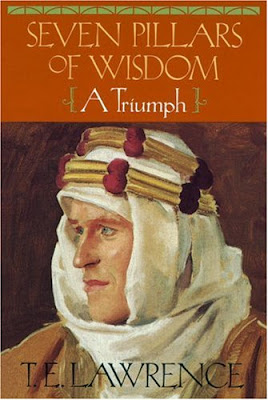
Above Graphic is called Censorship and is by Eric Drooker
Saturday, I came across this while going through my reader. (Thank you Christina over at Reading Through The Night). It is an article on WIRED about a landmark case. They didn’t actually call it that, but I have no qualms in doing so.
Anyone who has followed me on this blog for any length of time knows that banning and challenging books and art are issues I take seriously. And that includes using the claim of “obscenity” in order to justify said challenges.
I know the subject matter of the comics in question is unconscionable to many people. He freely admits to being in possession of manga depicting subject matter unacceptable in American society. (Apparently in Asia where these works originate, they are widespread and legal).
But this is not the whole story.
One has to take into account other circumstances such as no actual photographs depicting realistic scenarios was found, and the artwork confiscated was part of an overall collection of non-offensive works. He is an avid collector of all things manga so he did not censor his selections or purchases. A choice he made willingly. A choice he will pay for in prison.
I am left to wonder will the line be drawn here? Or are we looking at facing the potentiality of other artwork, comics, or graphic novels being questioned and their collectors facing lengthy prison terms such as Mr. Handley.
Consider this article by Jennifer Vineyard: Neil Gaiman On The ‘Obscenity’ Of Manga Collector Christopher Handley’s Trial in which he is quoted as saying:
“I wrote a story about a serial killer who kidnaps and rapes children, and then murders them,” Gaiman said, referring to a storyline in “The Doll’s House.” “We did that as a comic, not for the purposes of titillation or anything like that, but if you bought that comic, you could be arrested for it? That’s just deeply wrong. Nobody was hurt. The only thing that was hurt were ideas.”
“They found his manga, and found some objectionable panels,” Gaiman said. “He’s been arrested for having some drawings of rude things in manga. I’m sorry, but if you went through my comic collection, you could arrest me if you’re going to start doing that. It’s just wrong.”
Mr. Gaiman also addressed this issue with this post:Why defend freedom of icky speech?
What is obscene? At what point does it “cross the line” and become an act punishable by serving up to 15 years in prison? Does it stop here, or should I be concerned over my own growing collection of challenged material such as To Kill A Mockingbird, The House of the Spirits, or Alice’s Adventures in Wonderland?
I know that according to previous court decisions, I am in no danger due to the above because no “…reasonable person would find that the work, taken as a whole, lacks serious literary, artistic, political, or scientific value.” That is along as the community and society in which I live continues to find literary merit in what I read.
The following is excerpted a term paper I wrote while in college. I do like to keep my postings brief. However, this seems applicable to how I am feeling, especially after reading the article, and getting a sense that there are deeper implications than some may perceive at the outset. It was written about counterculture artists, yet I feel what is conveyed applies to all artists, writers, and poets.
If you don’t read the entire paper, at least scroll to the bottom and read the last paragraph. To this day, I think it is one of the best things I have ever written, and just as appropriate today as when I wrote it all those years ago.
Crossing the Line
Within the timeline of counterculture history, one recurring thread becomes apparent. Societies disdain for any person or group that refused to conform to societal norms manifested itself over and again in arrests, trials, and convictions of those who refused to abide by any law that repressed their ability to create. Throughout history this antipathy expressed itself upon all forms of art whether it was literary, musical, on canvas, or in sculpture. All counterculture artists push outward against the boundaries of conformity, and at times suffer for it. But some have not suffered quietly. They were the pioneers that made the way easier for others.
From the bohemians of the nineteenth century to the urban music of today, the envelope of socially acceptable art has been pushed, and at times laid open, by those artists who believe their art is “the affirmation of the individual’s power to create his own life rather than accepting the dictates of surrounding social authorities and conventions, be they mainstream or subcultural.” (Goffman 28) This belief inherently puts the artist in direct conflict with authority. As Goffman noted, “It’s not surprising, then, that countercultures are usually subjected to some level of prosecution. Breaking taboos, violating norms, challenging sacrosanct ideas: the anti-authoritarian spirit inherent in counterculture potentially threatens any established order.” (28) The main problem has always been the definition of what is obscene. According to Huston, “Obscenity laws define ‘victimless crimes’, which are based on preferences and not rights…the application of obscenity laws will always be arbitrary and discriminatory.” (75)
One of the first cases to help redefine the application of obscenity laws to literature was the case of United States v. One Book Entitled “Ulysses.” In 1918, two editors in New York were convicted and fined for printing excerpts of James Joyce’s Ulysses in their magazine The Literary Review. For this reason, no American or British publisher would consider handling the book. Only one, Shakespeare and Company in Paris, would help Joyce bring his work to the public. The novel remained banned in the United States until the publisher, Random House, attempted to have the ban lifted in 1933 by deliberately smuggling in a copy of the book and ensuring its discovery and confiscation.
The trial and subsequent decision affected how courts determined a work obscene. In essence, could an entire work be considered pornographic when only select paragraphs were perceived as offensive? Judge John Woolsey ruled that it did not. Woolsey was impressed with the sincerity of Joyce’s commitment to his stream of consciousness style. As noted by a news article at the time, “Federal Judge John M. Woolsey, after devoting almost a month of his time to reading the book, ruled in an opinion which he filed in court that "Ulysses" not only was not obscene in a legal sense, but that it was a work of literary merit.” (“Court Lifts Ban”)
Within ten minutes of the decision, Random House began typesetting the book and several years later, the ban was lifted in Britain. Many would note that his work is at best difficult to read, but none would deny that the publicity surrounding Ulysses did more for the number of books sold than the author work itself. As Goffman noted, “he was one of the first innovative twentieth-century artists to realize…that scandal is good for your career.” In general this proved to be true for most artists. However for one comic attempting to push societal boundaries in the sixties, the notoriety and scandal would prove to be fatal.
The fifties saw the emergence of the Cold War and widespread fear as “self-appointed groups were purging libraries, harassing teachers…for a time, it seemed as if traditional individual freedom, decency, and common sense were…sacrificed.” (Sellers, May, and McMillan 354) Luckily these fears were short lived; however it appeared to lead toward a growing disillusionment with authority and an awareness of the hypocrisy of the previous generation. Toward the end of the decade, many were praising the economic upturn while ignoring the distance growing exponentially between the wealthy and the poor, suburbia and the city. This disparity would have its consequences. Alienation from the mainstream had been growing since the end of World War II, and it was urging on group of socially minded individuals to action. Lawrence Ferlinghetti explained it best when he wrote, “It was a time of born-again optimism, but there were also new elements in the smelting pot of postwar America. There was a sense of great restlessness, a sense of wanting more of life…a vision of some new side open, more creative society.” (Ferlinghetti xi)
This vision led Ferlinghetti, and others, to San Francisco in the fifties. As he noted later, “The Beat poets…furthered the postwar cultural synthesis, and “Howl” became the catalyst in a paradigm shift in American poetry and consciousness…forecasting the main obsessions and ecstasies of liberation…against all that our postwar society was doing to us.” In was in this spirit that Allen Ginsberg stepped up to the microphone in the Six Gallery and began to read his poem. William Carlos Williams, in his introduction to the book Howl and other Poems, described his friend Ginsberg: “Literally he has, from all evidence, been through hell. On the way he met a man named Carl Solomon with whom he shared among the teeth and excrement of this life something that cannot be described but in the words he has used to describe it.” (Morgan and Peters 19)
The following year, City Lights Books owned by Lawrence Ferlinghetti published “Howl” in his Pocket Poet series. Due to restrictions in the United States, the book was printed in England. Initially the books had no problem passing through customs. However, a second printing was seized and held. The City District Attorney did not feel that there was enough of a case to prosecute, so the books were released to Ferlinghetti. However, the juvenile division of the San Francisco Police Department felt otherwise. They arrested the shop manager and put out a warrant for the arrest of Ferlinghetti. Their trial in the summer of 1957 would prove critical to the history of both American poetry, and American censorship.
Many were in strong support of Ferlinghetti and Ginsberg, including the American Civil Liberties Union and one of its lawyers, Albert Bendich. In defense of Ginsberg, Ferlinghetti himself argued that “Ginsberg wasn’t obscene…he was merely an artist expressing a point of view contrary to the prevailing philosophy of the times.” (Torgoff 64) After a long trial, the judge in the case, Clayton Horn, ruled in favor of the book. His decision stated that so long as the work had in any way content that was of redeeming social value, it is not obscene. Judge Horn found, “Ferlinghetti not guilty of publishing and selling obscene writings, on the grounds that Howl and other Poems was not written with lewd intent and was not without ‘redeeming social importance.’” (Morgan and Peters 3)
In preparation for this decision, Judge Horn not only familiarized himself with Ginsberg’s work, he had read Ulysses as well as Judge Woolsey’s decision and, as with Joyce’s Ulysses, the judge offered more than a simple decision. In his ruling, he wrote, “The author of Howl has used those words because he believed that his portrayal required them as being in character…Would there be any freedom of press or speech if one must reduce his vocabulary to vapid innocuous euphemism? An author should be…allowed to express his thoughts and ideas in his own words.” (Morgan and Peters 198)
In a twist of fate, Judge Clayton Horn will also oversee another obscenity case and rule in the favor of the accused. However, this favorable decision was one of very few positive outcomes that Lenny Bruce experienced in a courtroom. In addition to the same judge, Lenny was also lucky to have the same lawyer who represented Ferlinghetti. Albert Bendich knew the judge, and his predisposition toward protecting First Amendment rights. Lenny was acquitted and felt confident to go on with his career, and his style of satirical comedy. However, the jury felt differently and it was an omen that Lenny did not heed. On the final instructions to the jury before deliberating, Judge Horn instructed them on which points they must use in order to determine if Lenny’s act was obscene, “in essence, there were the same free speech points Horn had made in his People v. Ferlinghetti opinion.” (Collins and Skover 76) If not so instructed by the Judge, the jury would have convicted him. According to Collins and Skover, “Lenny Bruce’s freedom hinged on the fact that, in the name of the First Amendment, the members of the jury tolerated what offended them.” (77) This tolerance would rarely be repeated in future cases against the comic.
In every sense, Lenny was his own worst enemy. Lenny wanted control; control of his life, his words, and his defense against the law that he fought hard to change. Bruce was “the confrontational comic.” (Collins and Skover 9) Unfortunately, the legal system disliked strong-willed, in your face defendants and Lenny suffered – and ultimately died under the pressure to conform.
Ultimately, he was jailed and convicted in New York on obscenity charges. He had lost, and lost big. According to Collins and Skover, “New York was the kindest and cruelest of places. It was filled with an inexplicable tension – a conflict between tolerance and intolerance, between creativity and conformity…It both made and destroyed Lenny Bruce.” (191) Lenny had gone to New York because he thought he could finally be free of the constraints of hypocritical societal norms, but he soon found that the laws in New York were no different than the other places where he had performed, and been arrested. Tragically, he never served out his term. He died while the case was under appeal.
Nearly forty years after his death, comedians, lawyers, and writers who were directly, or indirectly, affected by Lenny Bruce’s work came together to petition New York Governor George Pataki for a pardon. In December of 2003, it was granted; the first posthumous pardon granted in New York state history. Today, comedians such as George Carlin, Robin Williams, and others can step up to a microphone without fear of censure, or fear of prison.
Social disdain and antipathy are still with us, and as there have always been those that have pushed outward against the boundaries of conformity, there are those who now stand up against that boundary, and refuse to allow it back to its original place. James Joyce, Allen Ginsberg, and Lenny Bruce are just a few of the pioneers who paved the way for today’s contemporary artists. As long as society insists on setting forth norms based on an ideal that cannot be clearly defined, or enforced, there will always be a struggle for balance, fairness, and freedom in expressing ones individuality and creativity. A line has been drawn, and if there is any counterculture left in modern times, they must ensure that it is crossed at every opportunity. It is their legacy to do so.
Works Cited
“Bruce, Lenny [Alfred Schneider] (c. 1924 – 66)”. The Cambridge Guide to Theatre. 2000. Xrefereplus. 24 April 2004 http://www.xreferplus.com/entry/964495.
Collins, Ronald K.L., and David M. Skover. The Trials of Lenny Bruce: The Rise and Fall of an American Icon. Naperville, IL: Sourcebooks, Inc., 2002.
"Court Lifts Ban on ‘Ulysses’ Here ." New York Times 7 Dec. 1933. 27 Apr. 2007 <http://www.nytimes.com/books/00/01/09/specials/joyce-court.html>.
Ferlinghetti, Lawrence. Introduction. Howl on Trial. Ed. By Morgan, Bill, and Nancy J. Peters. San Francisco: City Lights Books, 2006. xi-xiii.
Goffman, Ken (a.k.a R.U. Sirius), and Dan Joy. Counterculture through the Ages: from Abraham to Acid House. New York: Villard Books, 2004.
Huston, William A. "Under Color of Law: Obscenity vs. The First Amendment." Nexus – A journal of opinion 10 (2005): 75-82. 28 Apr. 2007 <http://www.nexusjournal.org/2005obscenity/75-82.pdf>.
Morgan, Bill, and Nancy J. Peters, eds. Howl on Trial. San Francisco: City Lights Books, 2006.
Sellers, Charles, Henry May, and Neil R. McMillen. A Synopsis of American History. Vol. 2. 5th ed. Boston: Houghton Mifflin Company, 1981. 2 vols.
Torgoff, Martin. Can’t Find My Way Home: America in the Great Stoned Age, 1945-2000. New York: Simon & Schuster, 2004.
Unger, Irwin, and Debi Unger, eds. The Times Were A Changin’: the sixties reader. New York: Three Rivers Press, 1998.






